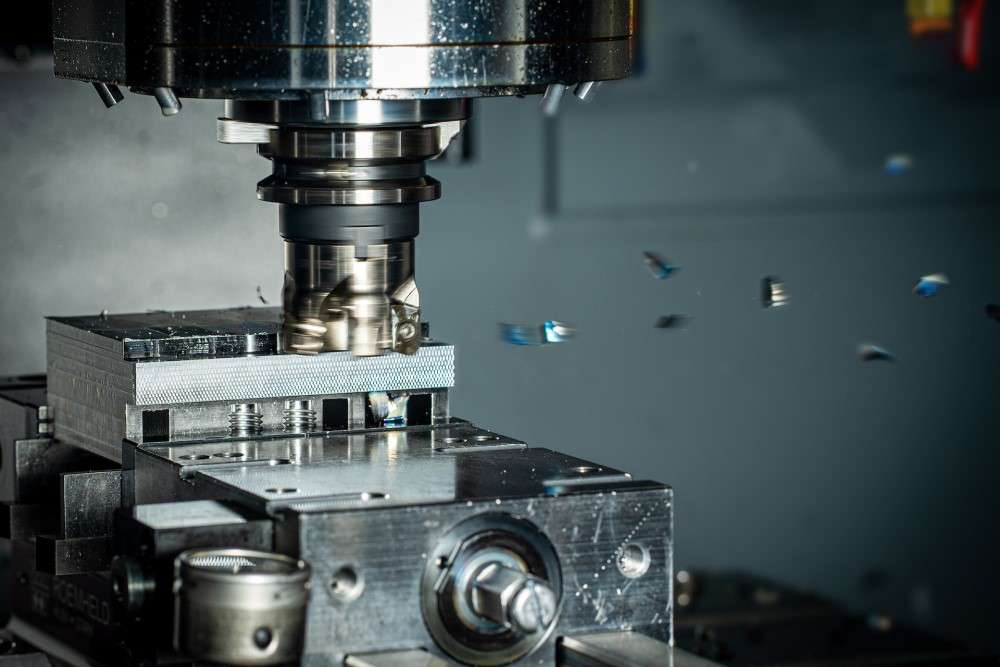German SMEs in the manufacturing industry are undergoing the greatest transformation process since the beginning of industrialization. Manufacturing companies are facing enormous challenges. In addition to the shortage of important resources, these challenges include topics such as digitization and sustainable business models. Industry 4.0 makes a decisive contribution to overcoming current and future challenges.
In this way, Industry 4.0, i.e. the comprehensive digitization of industrial production, forms the basis for increasingly relevant As-a-Service business models, which are becoming more and more relevant in the manufacturing industry.
Industrie 4.0 opens up the opportunity to create a common platform on which all stakeholders (operators, manufacturers, service providers) have a uniform view of the same asset with the help of the digital twin. This creates various added values: operators gain access to the asset master data and are also provided with a digital twin by the manufacturer. The manufacturer gains information about his assets so that he can target the further development of the equipment and offer lucrative service models (spare parts procurement, pay-per-use, etc.)..
Service providers can map and perform maintenance and other services using the network. Ultimately, all stakeholders are enabled to share all relevant information about the asset via a central system and optimize their respective processes on this basis.
Optimization of equipment through additional information about the machine
Closer customer ties
Basis for new business models
Digital twin of own equipment
Synchronization of master data with the manufacturer ( always the latest instructions, maintenance plans, etc.)
Simplified spare parts procurement (depending on manufacturer’s service)
System for central know-how collection
Direct, optimized information flow with the manufacturer and/or operator
Central mapping of maintenance
Remote access to master data
Usually, larger medium-sized companies operate several sites, which can make it difficult to get an overview of the entire production across all locations. Industry 4.0 ensures that all machines, regardless of their location, can be viewed from anywhere. This not only simplifies the development and implementation of joint maintenance strategies, but also the use of digital service offerings. At the same time, the information is available in a central system at all times. Changes to master data that have relevance across locations can be rolled out across all sites without any problems.
Optimization of production processes across all locations
Monitoring of the entire production from anywhere
Breaking down data silos between sites
Sharing of equipment changes across sites
The digital networking of manufacturer and operator brings about closer customer ties. The machine manufacturer no longer relies on one-time product sales, but offers new service models (value-added services) that promise additional sales. Depending on the type of machine, such services can be the procurement of spare parts or the automatic reordering of consumables.
The scenario can be illustrated using the example of spare parts procurement: A need for spare parts often arises during maintenance; the operator requires suitable materials from the manufacturer. Networking makes all the required spare parts available to the operator. Thanks to seamless integration, the operator can order the parts directly from the network. At the same time, service tickets can also be sent to the manufacturer or service provider to draw attention to problems or report anomalies.
Which service model can be interesting for which company is customer-specific and cannot be generalized. In principle, however, every company should examine the potential in this direction in order to generate additional revenue via new service models and reduce its own dependence on one-time sales. Changing the business model is a major undertaking. Therefore, the company’s management must stand behind the project and structures (especially in sales) must be adapted accordingly).
Creating new business models (selling a service (pay-per-use) instead of selling a machine)
Securing of recurring revenues
Optimization of spare parts procurement through automatic reordering
Reduced effort for spare parts procurement
Avoidance of high investments for the purchase of a machine
General simplification of numerous processes (depending on the design)
Those who can view the condition of their machines at any time benefit in terms of maintenance and machine performance, among other things. Predictive maintenance is a sustainable and effective maintenance approach that saves costs and resources by maintaining machines proactively before a failure occurs. The goal is to reduce unplanned machine downtime in the long term and achieve higher availability.
For the machine manufacturer, predictive maintenance is (only) interesting if he does not sell the machine as a product, but the performance of the machine as a digital service. As a result, he has a high interest in reducing the downtime of the machine. Accordingly, pay-per-use or pay-as-you-go models are in a sense the prerequisite for predictive maintenance.
Implementing predictive maintenance requires a high level of knowledge about one’s own machine. Error patterns are detected on the basis of changes in live data. Therefore, such a maintenance concept can also only be sensibly implemented for the company’s own machines.
Increase in machine availability as a competitive advantage
Close customer loyalty
Lower maintenance costs in the long term
Increase in sustainability in maintenance
Lower maintenance costs
Higher machine availability
Close exchange with manufacturer


Companies in the manufacturing industry are increasingly recognizing the competitive advantages associated with Industry 4.0. This is the finding of a study by the MPI Group. However, many managers also report difficulties in putting their Industry 4.0 initiatives into practice.

The digital twin connects the real world and the digital world in the sense of Industry 4.0. In this way, predictive maintenance can be realized and the basis for Everything-as-a-Service (XaaS) business models can be created.
Many of the challenges associated with implementing an IoT scenario can be mapped with standard SAP software. This allows you to focus fully on the business value of the solution. The basis for all IoT scenarios is SAP Business Technology Platform.
Simply complete the form and submit it. We will get back to you as soon as possible.